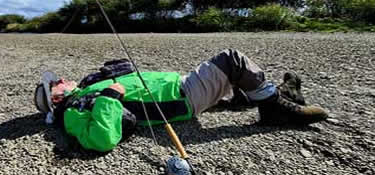| |
|
My brother-in-law Rob Crawford and I were packed and prepared to depart when the email came about Cyclone Gabrielle which canceled our Valentine’s Day (2023) flights to Auckland and Queenstown. New Zealand’s North Island was being pounded by the once-in-a-century storm, creating flight cancellations and a brief shutdown of Auckland’s International Airport. A state of emergency was declared, only the third in New Zealand’s history. A second cancellation occurred and we decided that if a third came, we would cancel the trip. The third time was the charm though, and off we went to the Southern Hemisphere, a 17 hour leg-numbing air journey, Reno to San Francisco, San Francisco to Auckland, Auckland to Queenstown.
Winter to Summer and Back to Winter
| |
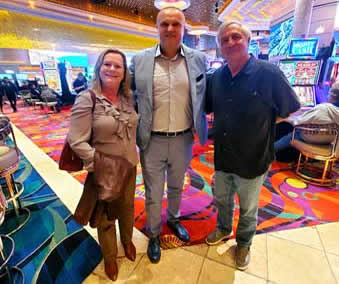 |
|
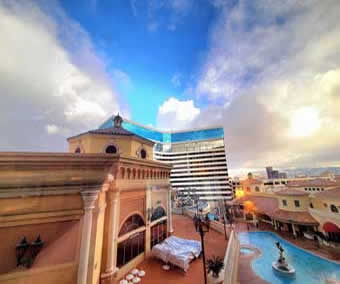 |
|
| |
|
|
|
|
| |
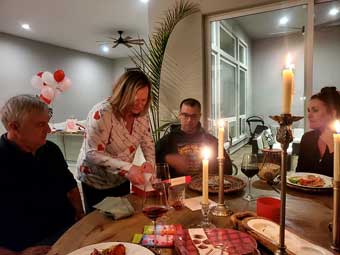 |
|
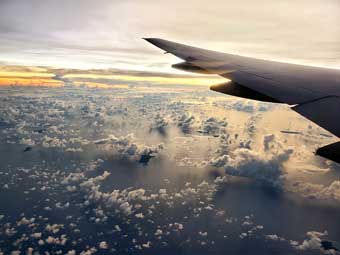 |
|
| |
|
|
|
|
| |
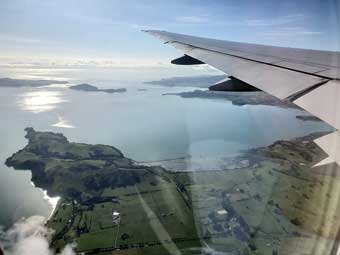 |
|
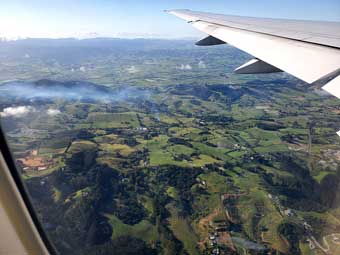 |
|
| |
|
|
|
|
We were to spend but three nights in Reno, Nevada, at the Peppermill Casino. Three nights turned into ten before our eventual departure. A great spot to be though, if you have to wait out air cancellations. The Peppermill has great accommodations, wonderful culinary experiences, heated swimming pools and piping hot hot-tubs and saunas to help chase away winter blues.
The best winter blues elixir though was arriving into New Zealand’s warm late summer. We would experience winter to summer and upon our return, summer to winter. In my case, absolute winter as I flew back to Vancouver, BC, Canada to ski Whistler for a couple of weeks.
The flight cancellations sliced our Kiwi time from three weeks to less than two. Rob had gone through a lot of effort to set up the trip and Gabrielle placed him right back at the drawing board. Sliced from our itinerary was visiting the South Island West Coast and Fiordlands. Rob was especially pumped up to experience his beloved New Zealand (this was his tenth visit) as covid had restricted and closed the travel door for nearly two years. I was excited to go, as it was my first journey to this extraordinary land and sea Down Under. Seeing Auckland from the air on our sunny arrival day buoyed my spirits even more.
Queenstown to the South End
| |
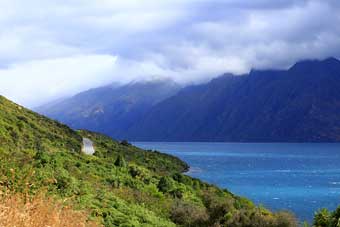 |
|
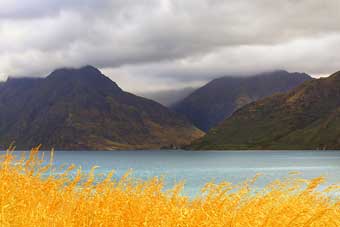 |
|
| |
|
|
|
|
| |
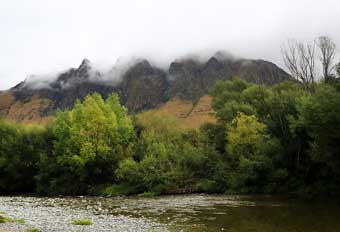 |
|
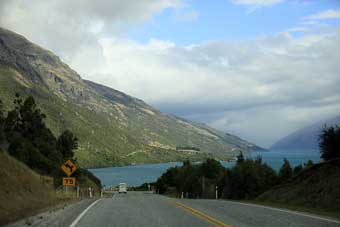 |
|
| |
|
|
|
|
We arrived in Auckland and had to hurry to get our domestic flight out to Queenstown. Unfortunately, I got caught in a slow and exceedingly long line at customs, resulting from imperfect face scanning machines that were kicking people out of the faster customs line into the molasses line. My scruffy traveling face did not match my ‘Sunday Go to Meetin’ face, I suppose. Most of the arriving passengers were scruffers too (including many locals), I surmised. Making matters worse, we individually had to transport our luggage from the international airport to the adjacent domestic airport. Rob led our charge to the domestic terminal with me making my best effort with my ski bum right knee. We missed our flight, but through some glib tongue work on the part of both of us, and the kindness of the Kiwi woman desk attendant, we got put on standby and then got on board another flight. I was hoping for a window seat to see the North and South Islands from the air, but none were available. Drats! My aisle seat did afford some views of the mountains and Lake Wakatipu (New Zealand’s third largest) as we approached and landed in Queenstown.
Finally, after our Queenstown arrival, the fun part of our trip began. The car rental business had a shuttle pick us up. Their funky simple office was not a harbinger of the type of car we received: a late model four door white road beast. Rob felt right at home driving from the ‘passenger’ side, or the ‘wrong side’ as we would call it back home. Also, we had to do a refresher mind course on the metric system of kilometers, meters, etc. Since we mainly went on this trip to fly fish for German brown trout, we immediately drove to a sporting goods store to get our fishing license, a few flies, and then on to the grocery store for some food supplies. I took time to take my first New Zealand photographs of the Remarkable Mountains that jut up to the sky from Queenstown.
We were eager to get into the countryside, which we accessed immediately, traveling south on picturesque Highway 6, skirting the enchanting Lake Wakatipu for a good stretch, before slipping into bucolic settings of sheep and red deer farms. It was a moody weather day with rising mist gathering around the higher reaches of the impressive mountains framing this lovely blue-green lake, New Zealand’s longest. We stopped once to walk its shores, Rob pointing out where his son Max caught several nice browns several years before at the mouth of a creek.
Country Roads
| |
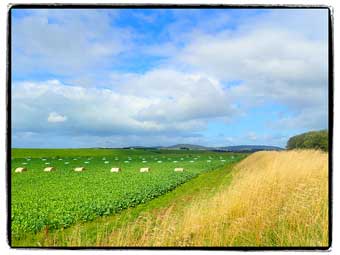 |
|
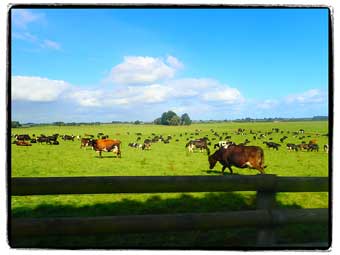 |
|
| |
|
|
|
|
| |
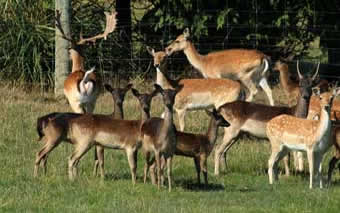 |
|
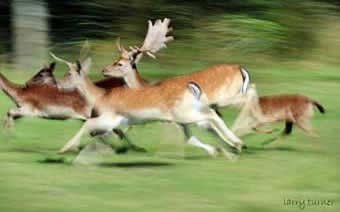 |
|
| |
|
|
|
|
| |
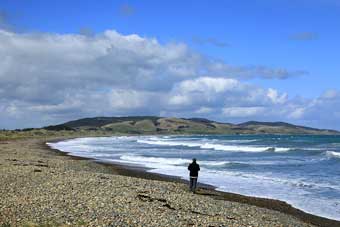 |
|
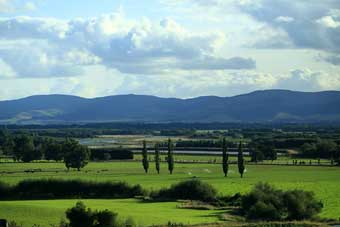 |
|
| |
|
|
|
|
| |
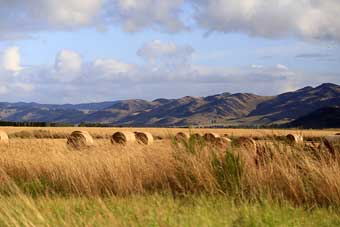 |
|
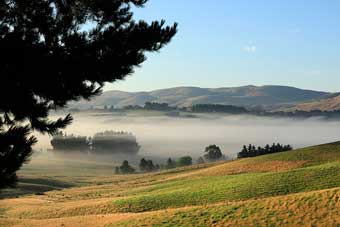 |
|
| |
|
|
|
|
| |
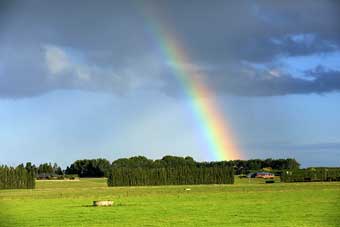 |
|
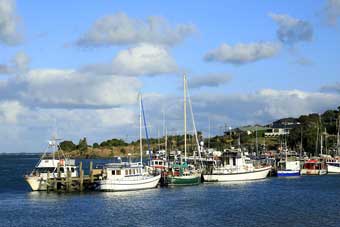 |
|
| |
|
|
|
|
| |
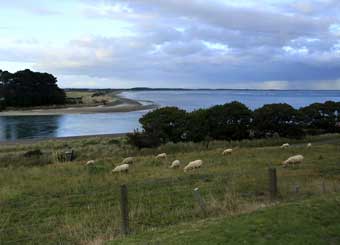 |
|
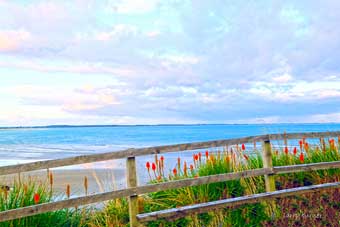 |
|
| |
|
|
|
|
| |
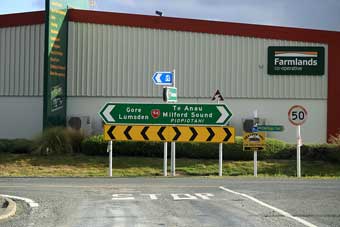 |
|
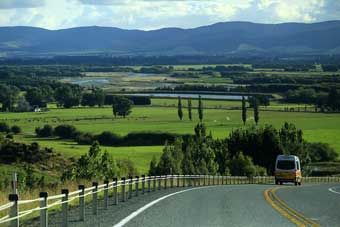 |
|
After turning off the main road, we took country backroads to our evening destination, and arrived at a dairy farm, Paddock 186, where we would stay for the next four nights. We were situated near Invercargill, New Zealand’s southernmost city a few miles from the seaport town of Bluff, the southernmost town in mainland New Zealand. Wikipedia says this of Bluff: ‘The Bluff area was one of the earliest areas of New Zealand where a European presence became established. The first ship known to have entered the harbour was the Perseverance in 1813, in search of flax trading possibilities, with the first European settlers arriving in 1823 or 1824. This is the foundation for the claim that Bluff is the oldest permanent European settlement in the country.’
We drove through beautiful farm country, verdant and ripe with crops (mainly grass hay rolled up into large round bales) and pastures with grazing sheep, dairy cattle, beef cattle and farmed deer (www.deernz.org), something that I had not seen in other parts of the world. I was happy to see this, as venison is my favorite wild meat, considered the most healthy and nutritious meat that one can consume. Lamb is my favorite domestic meat, making New Zealand a carnivore paradise for me. Yes, I love my veggies and fruit, too, and the Kiwis also have plenty of that.
The New Zealand Southland countryside is filled with paddocks, demarcated by small and large grazing fields enclosed by tall perennial hedges, trimmed at least once a year. Other forms of fencing also exist in the form of commonplace Lombardy poplars. We were treated to several rainbows on our drive. I photographed the countryside through my passenger window as we kept stops to a minimum to make up for our lost time at the Auckland Airport. We passed through a few small charming agriculture towns, and had dinner in one. We arrived at our lodging in the evening, dog-tired from the long flight and drive. I slept in a wee bit. Rob, a farmer by trade, was up with the roosters crowing, albeit these wake-up birds were peacocks at the Hull Paddock.
Garry Hull and the Dairy
| |
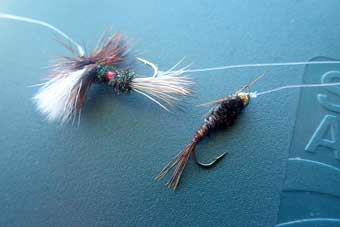 |
|
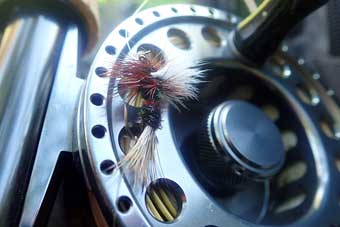 |
|
| |
|
|
|
|
| |
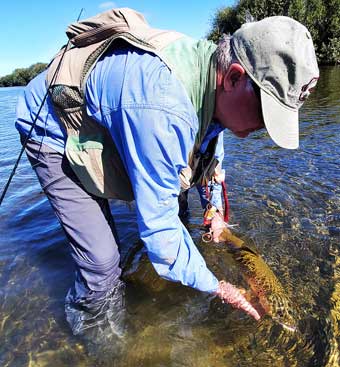 |
|
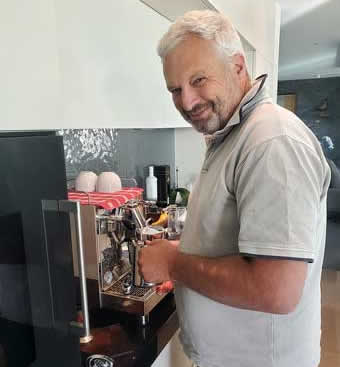 |
|
| |
|
|
|
|
| |
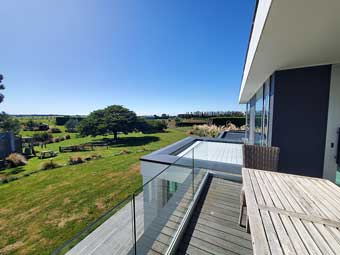 |
|
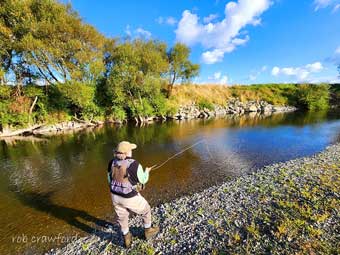 |
|
| |
|
|
|
|
| |
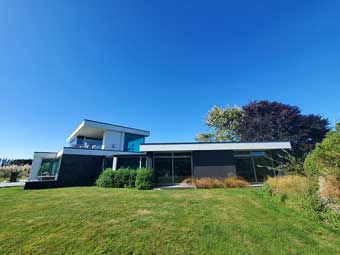 |
|
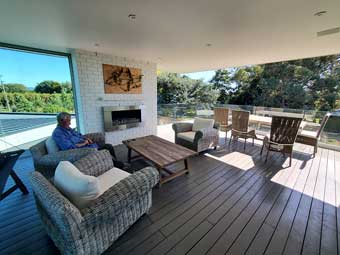 |
|
| |
|
|
|
|
| |
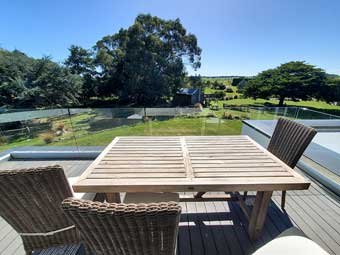 |
|
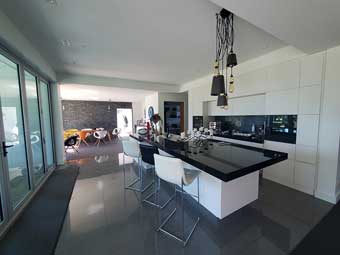 |
|
| |
|
|
|
|
| |
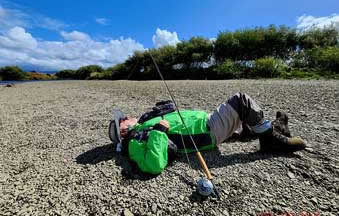 |
|
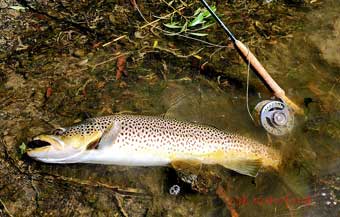 |
|
Garry Hull looks like a carbon copy of Ernest Hemingway. His stocky build, chiseled face and broad shoulders speak to his many years outdoors working on the dairy farm. I met him in the morning as Rob and my rooms connect to his main modern Frank Lloyd Wright-style house. He greeted us with fresh coffee and breakfast, jump-starting us for a day of fly fishing a nearby river. His cappuccino was on par with ones that I’d had in Northern Italy and Switzerland years ago.
Rob had risen early and had all of the fly fishing rods and gear primed and ready to go. With one last cappuccino for the road, we headed for the river...which shall remain unnamed. Writers and fisherman will sometimes do that so as not to place a spotlight on a fragile landscape/fisheryscape (yes, that is my word, not to be found in the dictionary). We fished both sides of the river and sometimes wade-fished in the river. Tippets were long and flies used were generally on the small side. It was mainly sight fishing. Rob caught a couple, I got skunked. On this trip, all of the fish caught were returned to the river. Both of us got a workout hiking and wading with full gear.
We had dinner at a local restaurant, then made our way back to Paddock 186 for showers and evening wine with Garry and his partner John. We hit the hay early to catch up on some jet lag. In the early hours of the morning, I was awakened by severe painful cramps in both of my legs. The charley horses were the most debilitating that I’ve ever had in my life. For a long while, I couldn’t even walk. Once able to walk, I made my way to water, drinking several glasses to hydrate. Additionally, I ate two bananas, great sources of potassium, which is helpful in relieving muscle spasms. I did some stretching chair exercises, too. I reprimanded myself for not drinking more water and taking electrolytes. Rob, in the adjoining room, went through the same thing. Later when in town, we picked up potassium tablets, and numerous bottles of electrolyte sports drinks. Lessons learned.
I didn’t fish the second day, electing to stay at the room to wrap up a story deadline. Boy, did I make a mistake. Rob had a banner day, catching and releasing a baker’s dozen plump German browns upwards to 6-7 pounds. Rob is the best fly fisherman I’ve ever known, so I wasn’t the least bit surprised. We celebrated with red-red wine for dinner and copious amounts of water.
Paddock 186
| |
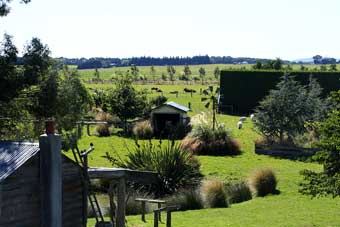 |
|
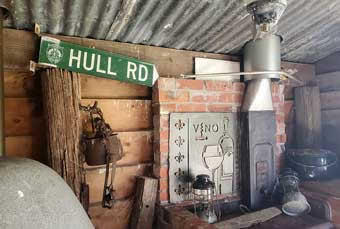 |
|
| |
|
|
|
|
| |
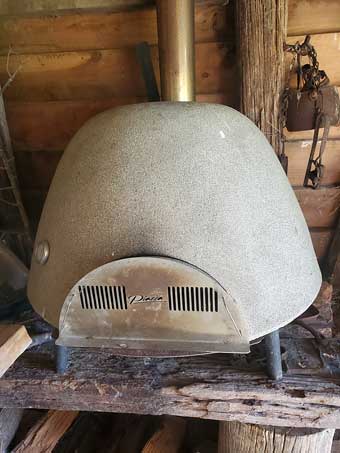 |
|
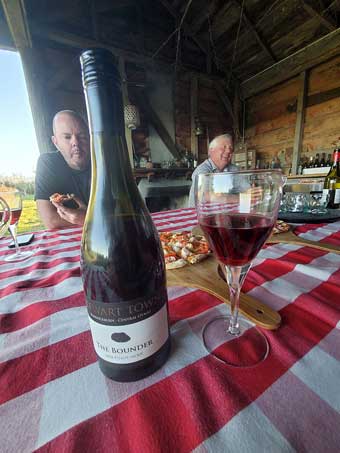 |
|
| |
|
|
|
|
| |
 |
|
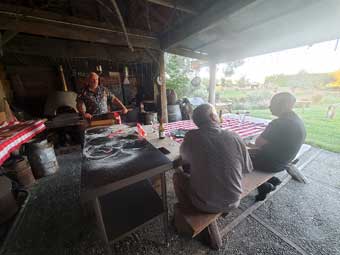 |
|
| |
|
|
|
|
| |
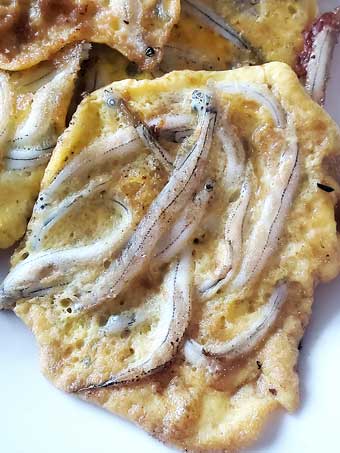 |
|
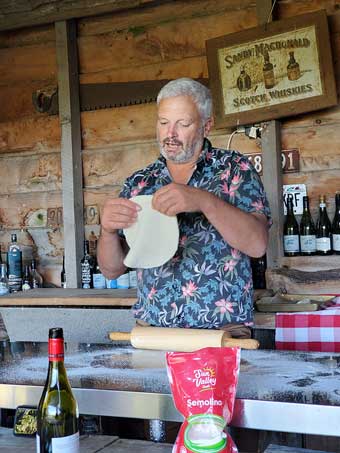 |
|
| |
|
|
|
|
| |
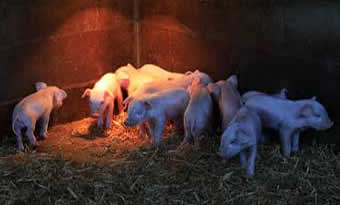 |
|
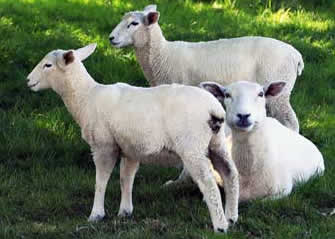 |
|
| |
|
|
|
|
| |
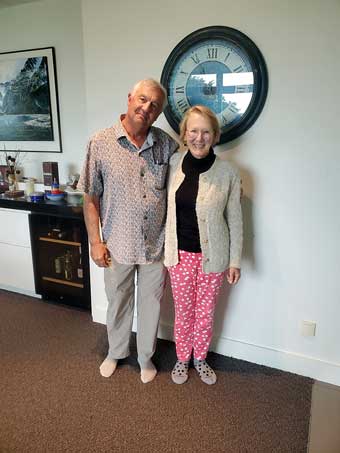 |
|
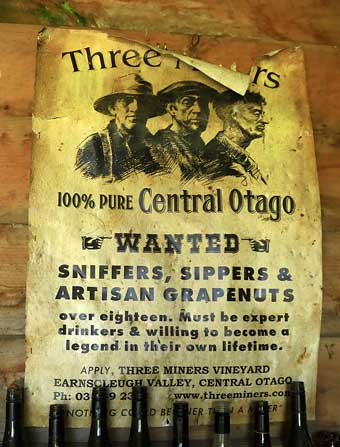 |
|
Our stay at Garry’s Paddock 186 was a perfect first immersion into South New Zealand. Rob had stayed there several times pre-covid, but since his last stay, Garry and his parents had sold the dairy part of the property, keeping five acres, on which he has a menagerie of animals mindful of Gerald Durrell’s book ‘A Zoo in My Luggage.’ When we were visiting, several of his large sows had piglet litters. Hull does part-time veterinarian work and also hosts on-property catering. Check this link out for more info.
The third evening in his ‘Pizza Shack,’ Garry made homemade pizza from scratch for Rob, John, and me, accompanied by a fine Otago Region Pinot noir. It was an unforgettable evening of great food, wine and conversation. I’m not a big-time pizza fan, but I think I consumed three of Garry’s masterpieces. Views of the idyllic farm from the open-sided ‘shack’ were deeply soothing, a place where one could easily spend hours enjoying the breath of life. We slept very well that evening.
Our last morning at Paddock 186 was memorable as Garry made a unique breakfast of whitebait egg scramble, accompanied by homemade muffins. Whitebait is a local delicacy of young smelt fish cooked and eaten whole - one of the most unique culinary treats that I’ve had. Joining us for breakfast was Rob’s dear friend Margaret Murdoch, a local Kiwi. Rob had taken lodging at her establishment years before she introduced him to Hull’s place.
We left Paddock 186 reluctantly, but looked forward to seeing and experiencing more of this enchanting land of memorable landscapes and wonderful people.
READING SUGGESTIONS:
Lonely Planet New Zealand’s South Island
Fodor’s Essential New Zealand
OTHER SUGGESTIONS:
Paddock 186: Garry Hull
email: [email protected]
FACEBOOK: Paddock 186
ABOUT THE AUTHOR
| |
Larry Turner is a productive, respected regional, national and international photographer/writer. His work has appeared in countless magazines and books, including Browntrout and Avalanche Publishers' calendars and books, American Heritage, National Geographic Traveler, Travel and Leisure, Sunset and many others. He is the co-author of the book Mount Shasta Reflections, and his photographs have appeared on covers of many books and magazines. He is an active skier, gardener, fly fisherman, and adventurer. His greatest love is spending time with his son Steen, Chef de Cuisine of the Cafe Kandahar in Whitefish, Montana. |
|
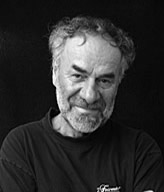 |
|
|
|
|
